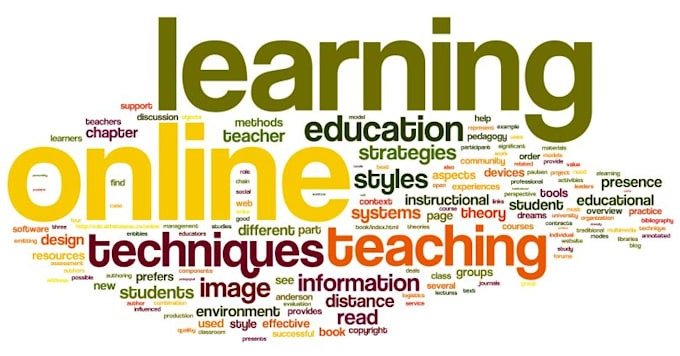Evolution of Education

Online Assignments, Applications, Guess Papers, and News
The landscape of education has dramatically transformed over the past decade, driven by the rapid integration of technology. Traditional classrooms, paper-based assignments, and manual application processes are giving way to digital classrooms, online assessments, and e-learning platforms. Today, education boards across the world are embracing technology to provide students with easier access to learning resources, more efficient administrative processes, and up-to-date information.
In this article, we’ll explore how education boards are evolving to accommodate online assignments, how students can apply online for exams and services, the continued use of guess papers as a study aid, and how educational news helps keep students, parents, and educators informed.
Education Boards and Their Role
Education boards are governing bodies that regulate and oversee the academic structure, syllabus, examinations, and certification of students in schools and colleges. These boards operate at different levels, such as:
National Boards: e.g., CBSE (India), Edexcel (UK), AP College Board (USA)
State/Regional Boards: e.g., BISE Lahore (Pakistan), Texas Education Agency (USA)
International Boards: e.g., IB (International Baccalaureate), Cambridge Assessment International Education
Key Responsibilities:
Curriculum Design: Boards develop syllabi for various subjects and grades.
Examination Administration: Conducting board exams, issuing admit cards, and result declarations.
Affiliation of Schools: Ensuring schools meet quality standards.
Teacher Training: Providing professional development to educators.
Digital Integration: Implementing technology for teaching, learning, and administration.
As the digital age advances, education boards are increasingly shifting toward online systems for assignments, applications, and communications.

Online Assignments – A Modern Learning Tool
What Are Online Assignments?
Online assignments refer to academic tasks given to students digitally, usually via a learning management system (LMS), email, or educational apps. They may include quizzes, essay submissions, research projects, and presentations.
Benefits of Online Assignments
Accessibility: Students can access assignments from anywhere with an internet connection.
Flexibility: Submissions can often be made within a flexible timeframe.
Instant Feedback: Many platforms offer automated grading and instant feedback.
Environmentally Friendly: Reduces the need for paper and printing.
Record-Keeping: Easy storage and retrieval of submissions.
Popular Platforms
Google Classroom
Microsoft Teams for Education
Moodle
Canvas
Edmodo
Implementation by Boards
Some education boards have begun mandating or recommending online assignments as part of regular coursework. For example:
CBSE India has encouraged online project submissions via school portals.
BISE Punjab (Pakistan) launched platforms for digital assignments during COVID-19.
International boards like IB and Cambridge have LMS integration for coursework submissions.
Online Application Systems
Gone are the days when students had to stand in long queues to submit exam forms or collect admission documents. Online applications have simplified administrative procedures.
Key Areas of Online Application:
Exam Registration
Scholarship Applications
College Admissions
Re-evaluation/Rechecking Requests
Certificate/Duplicate Marksheet Requests
How to Apply Online: Step-by-Step Guide
Visit the official website of your education board or institution.
Find the relevant application section (e.g., “Apply Online” or “Student Services”).
Register or log in with your credentials.
Fill in personal and academic details accurately.
Upload required documents (e.g., photos, previous marksheets).
Pay the fee via online payment methods.
Submit and download confirmation receipt for future reference.
Benefits
Time-Saving
User-Friendly
Real-Time Updates
Secure Payments
Accessibility from Remote Areas
Examples
NTS (Pakistan): Offers online application for entry and scholarship tests.
UCAS (UK): Centralized online university application system.
Common App (USA): Used for applying to multiple colleges at once.

Guess Papers – Helpful or Harmful?
What Are Guess Papers?
Guess papers are unofficial exam preparation resources that predict possible questions based on past paper trends, exam patterns, and expert analysis.
They typically include:
Important questions
Model answers
Likely MCQs
Chapter summaries
Sample papers
Popularity Among Students
Guess papers remain a favorite among students, especially those in board exam classes (e.g., 10th and 12th grades), due to:
Time Constraints: Students use them for quick revision.
Pattern Understanding: Offers insight into the exam style.
Focused Study: Prioritizes key topics.
Risks and Downsides
Over-Reliance: Students may ignore full syllabus.
Inaccuracy: No official guarantee of question accuracy.
Ethical Concerns: Some papers may be leaked or unofficially sourced.
Best Practices for Using Guess Papers
Use them as supplements, not substitutes.
Combine guess papers with past year papers and textbooks.
Ensure papers are from reliable sources.
Cross-check with syllabus guidelines.
Education News – Staying Informed
In an age of rapid change, staying updated with education news is more crucial than ever. Whether it’s exam date changes, syllabus revisions, or policy updates, news portals help keep stakeholders informed.
Types of Education News
Exam Schedules & Updates
Board Announcements
Result Declarations
Scholarship Opportunities
Policy Reforms
Education Technology News
Trusted Sources
Official Board Websites: Always verify information from the board’s official portal.
Educational News Portals: e.g., India Today Education, Dawn Education (Pakistan), EdSurge (US)
Social Media Handles: Many boards now publish updates via Twitter, Facebook, and Instagram.
Government Portals: Ministry of Education websites often announce national level reforms.
Impact of Fake News
Students and parents must be cautious about fake or misleading information circulated via unofficial WhatsApp groups or unauthorized websites. Always verify news from authentic sources.
The Future of Digital Education
AI and Automation
Artificial intelligence is already being used for personalized learning, chatbots for student support, and automated grading systems.
Cloud-Based Classrooms
Platforms like Google Workspace and Microsoft 365 are making remote collaboration seamless and secure.
Augmented & Virtual Reality (AR/VR)
AR/VR is revolutionizing education, especially in science, medicine, and engineering, by offering immersive experiences.
Blockchain for Credentialing
Blockchain is emerging as a secure way to store and verify academic credentials, helping reduce fraud.